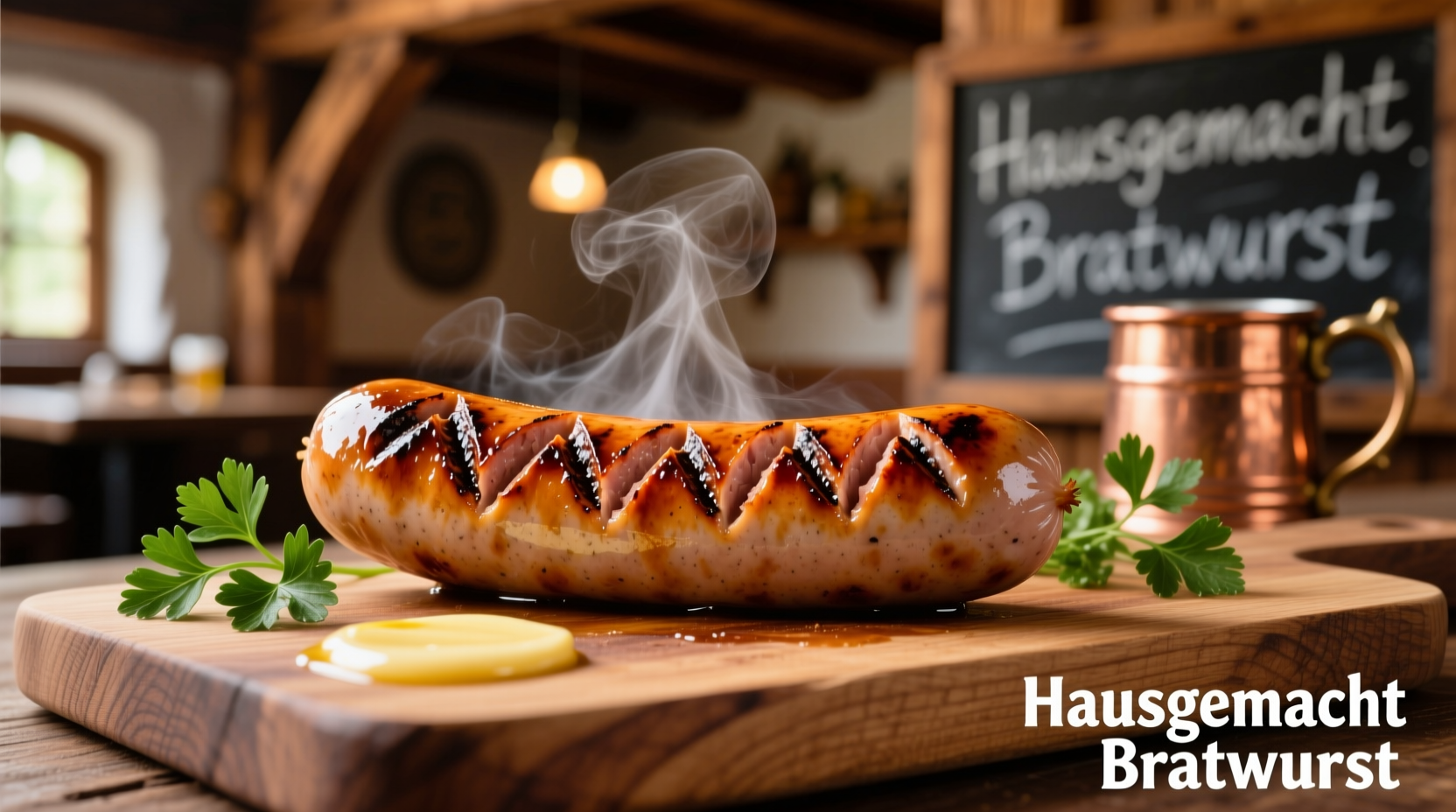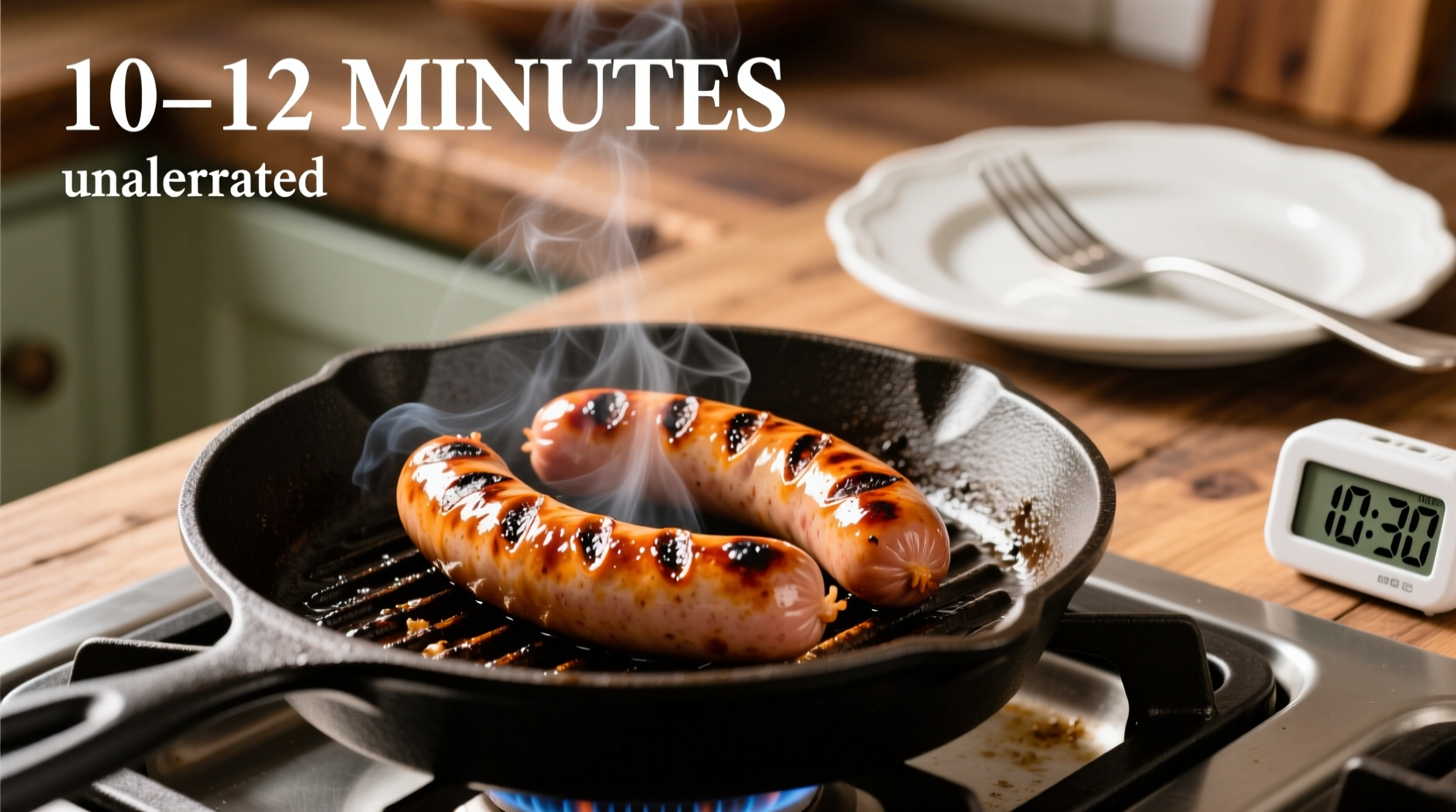The Definitive Guide to Cooking Brats Perfectly Every Time
Nothing beats the satisfaction of serving perfectly cooked bratwurst at your next gathering. But getting that ideal balance of juicy interior and crisp, caramelized exterior requires understanding more than just cooking time. As someone who's cooked thousands of brats in professional kitchens and backyard grills, I've discovered that timing alone doesn't guarantee perfection—it's about understanding the science behind the process.
Why Timing Varies: The Critical Factors You Must Consider
While the standard answer is 15-20 minutes, several factors influence how long to cook a brat:
- Starting temperature – Cold brats straight from the fridge need 2-3 minutes longer than room-temperature ones
- Thickness – Standard 6-inch brats cook faster than jumbo varieties
- Grill type – Charcoal provides more variable heat than gas
- Ambient temperature – Cold weather extends cooking time by 15-20%
According to the USDA Food Safety and Inspection Service, pork products like bratwurst must reach 160°F internally to eliminate potential pathogens like Salmonella and E. coli. This food safety guideline forms the foundation of proper brat cooking, making temperature more reliable than time alone.
| Cooking Method | Recommended Time | Internal Temp | Heat Level |
|---|---|---|---|
| Direct Grilling | 15-20 minutes | 160°F | Medium (350°F) |
| Indirect Grilling | 20-25 minutes | 160°F | Medium-Low (300°F) |
| Stovetop Pan | 12-15 minutes | 160°F | Medium |
| Air Fryer | 10-12 minutes | 160°F | 375°F |
The Professional Chef's Step-by-Step Cooking Process
Preparation: Setting Yourself Up for Success
Remove brats from refrigeration 20-30 minutes before cooking. This simple step reduces cooking time variance by allowing more even heat penetration. Never pierce brats with forks or skewers—this releases precious juices that keep them moist. Instead, use tongs for turning.

Grilling Method: The Gold Standard for Brats
For the best results when learning how long to cook a brat on the grill:
- Preheat grill to medium (350°F) with two-zone setup
- Place brats over indirect heat for 10-12 minutes
- Move to direct heat for final 5-8 minutes to develop crust
- Turn every 3-4 minutes using tongs
- Check internal temperature in thickest part
This two-stage method prevents the common mistake of burnt exteriors with raw interiors. The American Institute of Baking confirms that gradual heating allows proteins to denature properly, preserving moisture while ensuring food safety.
Stovetop Technique for Indoor Cooking
When outdoor grilling isn't possible, follow this professional approach for how long to cook brats in a pan:
- Use heavy-bottomed skillet over medium heat
- Add 1/4 inch of beer or broth (never water)
- Cover and simmer for 8 minutes
- Uncover and cook 4-7 minutes until browned
- Rotate frequently for even browning
Avoid These 3 Common Brat Cooking Mistakes
Mistake #1: Boiling Before Grilling
Many home cooks mistakenly boil brats before grilling, believing it ensures thorough cooking. Food science research from the University of Minnesota Extension shows this practice actually leaches flavor and causes casing separation. The proteins coagulate too quickly, resulting in tough texture.
Mistake #2: Relying Solely on Time
Time is merely a guideline—your thermometer is your true guide. Brats cooked at consistent 350°F typically reach 160°F in 15-20 minutes, but variables like wind, ambient temperature, and grill type affect actual cooking time. Insert your thermometer horizontally through the side for most accurate reading.
Mistake #3: Skipping the Resting Period
Let brats rest for 3-5 minutes after cooking. This crucial step allows juices to redistribute throughout the sausage. Cutting immediately causes precious moisture to escape onto your plate rather than staying in the brat.
How to Tell When Brats Are Perfectly Cooked (Without a Thermometer)
While a thermometer is ideal, these visual indicators confirm doneness:
- Texture – Firm but springy to gentle pressure
- Color – Deep golden-brown with caramelized spots
- Juices – Clear, not pink
- Bounce test – When lifted with tongs, they should bounce slightly
Remember that brats continue cooking from residual heat after removal from the grill. Pull them at 155°F to account for this 5-degree rise during resting.
Special Considerations for Different Brat Types
Not all brats cook the same. These context boundaries affect how long to cook a brat:
- Pre-cooked vs. fresh – Pre-cooked varieties need only 10-12 minutes to heat through
- Chicken/turkey brats – Require same 165°F internal temp as other poultry
- Smoked brats – Already cooked; need only 5-7 minutes to heat and brown
- Homemade brats – May need additional time due to higher fat content
Understanding these variations prevents the most common frustration home cooks experience: following generic timing advice only to end up with undercooked or dry results.
Pro Tips for Brat Mastery
After years of perfecting brat technique, these professional insights deliver consistently excellent results:
- Oil the grill grates, not the brats, to prevent sticking without adding excess fat
- Use beer with complementary flavors – Dark beers for smoked brats, pilsners for traditional
- Don't crowd the cooking surface – Maintain proper heat circulation
- Finish with a cold beer bath – Briefly submerge in cold beer for extra juiciness
These techniques address the emotional pain points many home cooks experience—the anxiety of serving undercooked meat or the disappointment of dry, tough brats at important gatherings.











 浙公网安备
33010002000092号
浙公网安备
33010002000092号 浙B2-20120091-4
浙B2-20120091-4